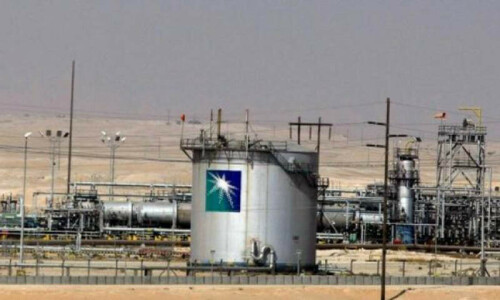The despite the 2005 free trade agreement has since been scaled up to 25pc, virtually blocking Pakistan out of this segment of its market.
Islamabad has not been able to resolve the issue, leading to export losses worth millions. On the exporters’ complaint, the Trade Development Authority of Pakistan (TDAP) conducted an inquiry and found the Sri Lanka violating the bilateral trade agreement between the two Saarc members.
The officers handling the issue at TDAP in 2012 told Dawn that the investigations established that if the unilateral steel import cess is not reversed, the export of the product would become unviable. The TDAP, therefore, suggested that the commerce ministry take up the issue with Colombo.
‘There is no rationale for a commercial policy framework that erodes the local industrial and agricultural base and gives little or no advantage in the markets of nations we choose to partner with’
“From what I know, nothing has so far been done to revive the export of pipes and tubes to Sri Lanka. I see no point in trade pacts if it all boils down to falling exports and rising imports,” Riaz Chinoy, CEO of International Industries, told this scribe over phone.
“My company wrote the first letter to the relevant authorities in July 2012, a month after Sri Lanka introduced the cess. We pointed out that the duty implication is 20pc on HS code 7306.30 and 10pc on HS codes 7306.61.90, 7306.63.90 and 7306.9090. The government did not take interest and we lost the market,” the irritated businessman said.
Pakistan faces a huge trade deficit as its imports are almost double its exports. Last year, total exports were $25.1bn, against imports of $45bn. Trade data for the first nine months of this fiscal year indicate a further widening of the export-import gap.
Why did the government not do anything? The question was sent to high-ranking officers in the relevant departments and ministries.
TDAP secretary Rabia Javeri Agha was more focused on facilitating the export of commodities, such as rice, to Sri Lanka. “I will have to get the details of the case, but I can tell you that it is not on our agenda at the moment,” she said over phone.
A former trade and commerce service officer who has moved to the private sector told Dawn that free trade agreements (FTAs) with Muritius and several other countries, with limited scope of two-way trade, merely provided the opportunity to some people to make foreign trips at the public’s expense.
He believed that the relevant departments are ill-equipped to handle the intricacies of managing bilateral FTAs, which “are far more complex than the global multilateral trade agreements. The experience of Pakistan is pertinent in this regard”.
A leading businessman agreed. “There is no rationale for a commercial policy framework that erodes the local industrial and agricultural base and gives little or no advantage in the markets of nations we choose to partner with.”
“I am all for trade liberalisation, but letting others dump their products in our market is not on. Yes, people want cheap products and there is a need to improve systems and products for competitiveness. But an anti-industry environment would not lead the economy in the desired direction,” he said.
There is a strong perception that a number of countries, including China and India, are dumping their products, causing serious injury to local producers.
The World Trade Organisation promotes the principle of applying binding tariffs equally on all trading partners. It allows governments to introduce protective measures if dumping is hurting the industry in the importing country. Governments wishing to apply anti-dumping measures are, however, required to conduct a detailed investigation, including the evaluation of factors that may have had an effect on the injured industry.
Published in Dawn, Economic & Business, May 4th, 2015
On a mobile phone? Get the Dawn Mobile App: Apple Store | Google Play













































Dear visitor, the comments section is undergoing an overhaul and will return soon.